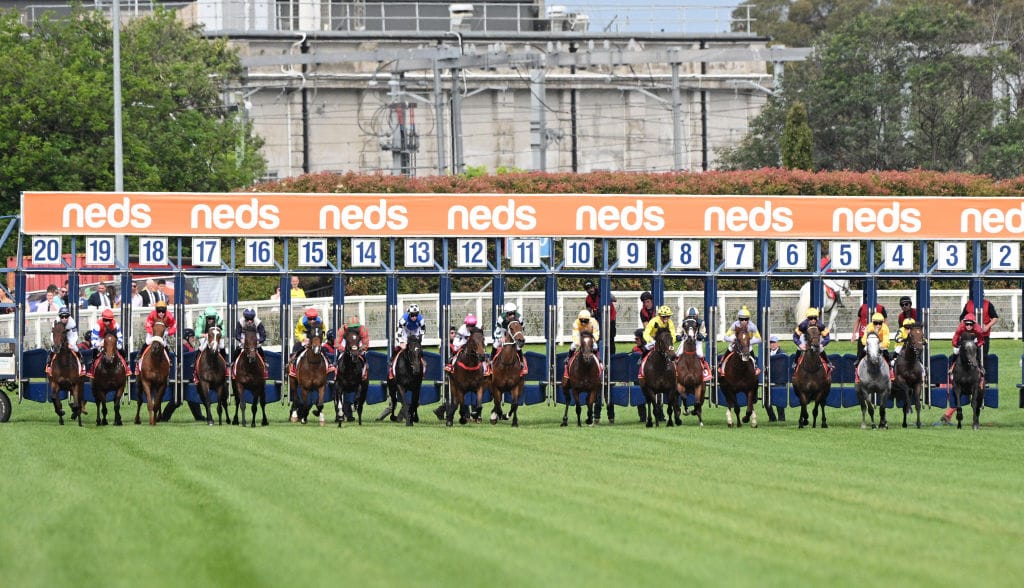The wagering industry in Australia, which has exploded in size over the past 15 years, has negotiated its precipitous growth largely around a myriad of state and territory-based laws and regulation.
But in June 2023, a bi-partisan federal government committee released a sweeping report entitled ‘You Win Some, You Lose More’, outlining a suite of reforms it believed was crucial to reforming the industry.
The 31 recommendations crystalised a clear path to changes to a betting industry which had grown largely unchecked from a federal point of view, since the High Court opened the door to corporate bookmaking as we now know it in a landmark 2008 ruling against the Western Australian government.
Unfettered by federal interference, the wagering industry has become a behemoth, the domain of international betting powerhouses, who have used the opportunity to greenhouse their product, engagement and customer base.
Among the other beneficiaries have been the racing and sports bodies, which secured, firstly through legal means and then through partnerships, a rich tap into the revenue pipeline. In 2008/09, turnover on thoroughbred racing was $14.4 billion, while by 2021/22, it had more than doubled to $29.1 billion. All of that growth, and more, has come from the corporate bookmaking sector.
The benefits for the broader racing industry are clear for all to see. In 2008/09, returns to thoroughbred owners in Australia were $471 million. In 2021/22, that had grown to $936 million.
But that extraordinary path of growth, and the money that it generates, has drawn plenty of attention from those in the halls of power. State governments, left out of much of the revenue pie because the majority of these bookmakers were licensed in the Northern Territory, achieved their cut of the proceeds through state-based Point Of Consumption taxes, which have progressively been introduced over the past six years.
Gambling laws in Australia are largely the domain of state governments, so how did the federal government get involved?
There are two reasons. Firstly, gambling advertising, and its saturation level, became a political issue. Despite a suite of attempts to curtail the volume of betting advertising in Australia, marketing has continued to grow. Wagering service providers reportedly spent $310 million on advertising in Australia in 2022.
Secondly, the federal government, especially since Labor took power in 2022, have become increasingly concerned about the lack of effectiveness of the states and the lack of accountability from WSPs when it comes to harm reduction and other regulation.
So, the first recommendation of the ‘You Win Some, You Lose More’ report sets out the intention that responsibility for this is held by one federal minister. That minister would then oversee the implementation of whichever aspects of the committee report that government of the day chooses to tackle.
The heart of the committee’s report is about harm reduction, and the best methodology for reducing the instances of problem gambling, better inform the public on the issues around gambling harm and set-up processes to better inform further reform going forward.
It also deals with the spectre of illegal offshore gambling, the role of banks and WSPs in monitoring problematic behaviour and implementing better consumer protection for those involved in wagering.
For WSPs, these aspects point to a greater requirement for compliance, with national regulation and an independent ombudsman to regulate their behaviour. There is also a recommendation on setting minimum bet limits, assisting those who are classified as ‘winning punters’.
There are also four recommendations which deal with ‘simulated gambling’, particularly through gaming, and its impact on young people as a pathway into gambling behaviour.
The majority of the recommendations would seem to operate on common-sense principles, although several state-based racing bodies have objected to a national regulator in this space, saying there is enough regulation at a state level.
However, the two recommendations which have caused the most consternation among WSPs and the broader racing and sports industries are Recommendation 26 and Recommendation 16.
Recommendation 26 sets out a detailed plan for the comprehensive ban of all forms of online gambling advertising. It would be introduced in four phases over the course of three years.
Significantly it recommended an exemption for ‘dedicated racing channels and programming’, which gives the racing industry a carve out, given its reliance on wagering advertising.
There has been some understandable pushback from the wagering industry and from sporting bodies on the impact of a comprehensive ban, which also includes in-stadia advertising and logos on sports teams uniforms.
But it is also a move which has widespread political support, with the phased approach designed to give sports bodies, in particular, time to find alternative revenue streams.
The recommendation which has caused most consternation and has been the centre of much of the lobbying from the wagering and broader thoroughbred industry, is one of shorter and less specific ones – Recommendation 16.
“The Committee recommends that the Australian Government prohibit all online gambling inducements and inducement advertising, and that it do so without delay.”
The definition of inducement is what has concerned the bookmakers and the racing industry. A broad application of the term inducement would include aspects such as bonus bets, boosted odds, multis, deposit matches and all manner of other markets.
These collections of marketing-based incentives contribute not just to the bottom line, but also make up a substantial amount of turnover, and as such are currently taxed in much the same way any ‘dollar-for-dollar’ investment would be.
Projections by racing bodies predict a blanket ban on all these types of incentives would strike a $100 million hole in their annual bottom lines immediately, growing to $500 million very quickly. Put in the context of the already cooling wagering market, this would be disastrous for those trying to administer racing.
The larger WSPs are predicting an even greater hit, with a worst-case scenario modelled at $800 million per year should a broad definition of incentives be applied and be legislated.
Part of this would be an expected hit to the state-based Point of Consumption taxes, changing the goalposts for those states, such as Queensland, who have negotiated their racing funding deals based as assumptions of future POC revenue.
Much of the lobbying to the federal government by those involved in the industry since the release of the report has been around Recommendation 16, with the concern that the full consequences of an incentive ban are not properly understood.
The industry now awaits the decision and announcement from Communications Minister Michelle Rowland as to how the recommendations will form proposed legislation.
The announcement was initially expected to be by the end of 2023, but the complex nature of the issue and the slow turning wheel of the political cycle mean there has been little sign of progress in 2024.






